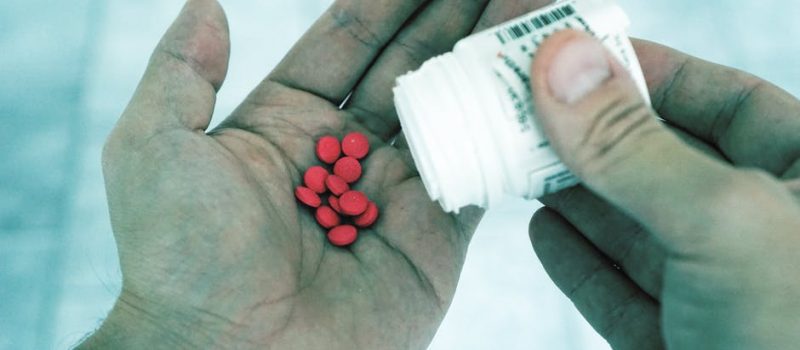It is no exaggeration to say that everyone in the United States knows someone whose life is touched by addiction. According to the latest statistics available — which many experts say are likely low estimates –, there are over 23 million Americans who are addicted to alcohol or drugs, or both.
If you are among those who are affected by addictive behavior, either directly or indirectly, it’s important to think about choosing a skilled care facility. Even if the addict you are trying to help is not yet ready to enter rehab, having done your research can help ease your anxiety.
The Collateral Damage of Addiction
Loving and living with a drug addict or alcoholic can be incredibly stressful. Spouses or partners, parents, children, other relatives, friends, and coworkers of people battling addiction must themselves deal with:
- Fear that the addict will overdose and die
- Concern for the addict’s long-term health
- Guilt over their perceived role in the addiction behavior
- Financial issues related to supporting the addict, either fully or partially
- Decreased intimacy and trust
- Feeling powerless or helpless to change the situation
- Fear that the addict will become violent or abusive
- Complications of addicts who have turned to crime to support their habit
- General uncertainty about how to handle the situation
Choosing a Skilled Care Facility
When the addicted family member or friend finally “hits bottom” and agrees that detox and rehab are the next steps, it can feel like a huge relief. But that decision can also bring up a number of other questions and stressors. Namely, what type of facility will be best for your loved one?
To streamline the process of helping your loved one, and to ease your own burden, begin looking into facilities in advance. Here are a few factors to consider as you begin evaluating rehab options.
Will Detox Be Necessary?
Chances are that the answer to this question is yes. Opiates, narcotics, alcohol, and other addictive substances change the body and brain in powerful ways. From the addict’s point of view, some of those changes are quite welcome — otherwise, the drug wouldn’t appeal to anyone!
However, the more someone uses and abuses a drug, the more destructive it can become. This is true on both a physiological and psychological level. Before the psychology of addiction can be addressed, it is imperative for the physical addiction to be conquered.
The symptoms of drug withdrawal are intensely unpleasant. Addicts who try to detox on their own almost always return to using very quickly. They do so just to stop the pain of withdrawal, even if mentally they want to quit the drug.
Medically supervised detox is important because quitting these powerful drugs “cold turkey” can be dangerous and even deadly. In many cases, medication to ease the withdrawal symptoms is necessary. In addition, the patient’s vital signs and general physical condition needs to be monitored by medical professionals.
It’s a smart idea to discover more about how detox works, so you can choose a skilled nursing and rehabilitation center for your loved one.
What Happens After Detox?
Most detox programs occur in conjunction with rehabilitation. Once the addict has detoxed and been medically cleared, she will transition to the inpatient rehab portion of treatment.
Most rehab programs are 30, 60, or 90 days. During that period, the now-recovering addict will be an inpatient at the facility. This means that she will be in the care of addiction professionals, as well as in the company of other recovering addicts.
Are All Rehab Programs the Same?
Not at all! Most of them do have some common elements. Patients benefit from
- Healthful meals
- A supportive and safe environment
- Continued medical attention, if necessary
- Social activities.
- Individual therapy or counseling
- Group therapy
- Specialized therapy sessions such as anger or stress management, or grief counseling
- Sober living classes to help the addict get back on her feet as a newly sober person
- 12-Step meetings or other treatment modality-specific group sessions
An increasing number of rehab facilities are also offering holistic and/or alternative therapies and activities, such as:
- Art or music therapy
- Yoga classes or meditation techniques
- Mindfulness-based relapse prevention
- Wilderness or nature therapy
- Animal therapy
In addition, you can seek out specialized treatment facilities for LGBTQ individuals, teenagers and young adults, military veterans, dually diagnosed patients, people of different religious faiths, and many other groups. Addiction does not discriminate.
All Skilled Care Facilities Have One Thing In Common
They are staffed by compassionate, empathetic, and experienced professionals who have helped many other people overcome addiction.
Individuals who are struggling with addiction, and their family members, may have many questions, fears, and concerns as they take the first steps on their recovery journey. Everyone you meet at a detox or rehab facility understands this and is happy to help you however they can.
In fact, many of the staff and counselors have firsthand experience with addiction themselves. That makes them uniquely qualified to address your family’s concerns and to provide inspiration and hope.
Wrapping Up
Nothing about life with a person who’s addicted is easy. Even after the addicted individual is ready to accept help and get clean, the struggle continues through detox and rehab, starting a new life as a sober person, and maintaining that sobriety.
Recovery is a lifelong process, not a milestone, but choosing the right skilled care facility can give both the addict and her loved ones a definite advantage. Do your research now to find out what types of treatment are out there, and to narrow down some choices for the future.
In the meantime, don’t forget to take care of yourself. We’ve got lots of informative blog posts to help you achieve health and wellness, relieve stress, communicate with others, and even have a laugh once in a while. Good luck!

